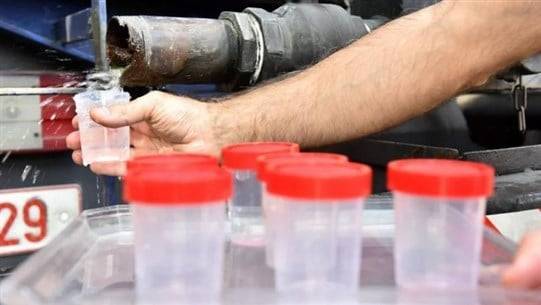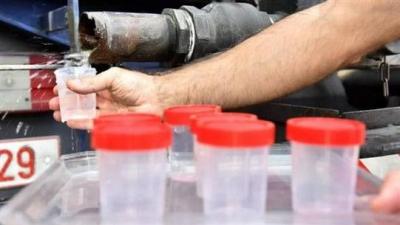Blows on the agricultural sector keep coming. Just as farmers were reopening the export of fruits and vegetables to Arab countries, after it was shut down due to irresponsible political statements and drug smuggling, the cholera outbreak began. Jordan was one of the most hesitant countries regarding the import of vegetables and fruits from Lebanon, holding off for several days before “returning to normal imports after confirming that the exported fruits were free of cholera,” according to Shakir Al-Samad, Vice President of the Vegetable and Fruit Importers and Exporters Union. This is significant as exporting to Jordan passes through Syria, where the outbreak is spreading severely.
So far, the limited effect of the outbreak on agricultural exports has been attributed to the fact that current sea exports consist mainly of apples, grapes, potatoes, and some other products. Meanwhile, the export of more vulnerable crops has declined due to spoilage during maritime transport, which is the sole outlet for product disposal. However, the pressing question remains: how long can agricultural exports avoid import bans imposed by some countries? Especially considering the rapid spread of the outbreak and the evident inability of the authorities to contain it due to the decline in services.
It is worth noting that there are 974 camps for Syrian refugees in the Litani River basin, accommodating 68,645 displaced persons, whose untreated wastewater is directly discharged into the river. Furthermore, most treatment plants in Bekaa and other Lebanese regions are non-operational due to a lack of electricity or the need for maintenance. According to the Litani River Water Authority, “the daily discharge rate of wastewater is 128,154 cubic meters, equivalent to approximately 46 million cubic meters annually, most of which flows directly into the river or seeps into groundwater. This includes approximately 4 million cubic meters of wastewater from displaced persons in the upper basin villages. The danger is that this river serves as a primary water source for irrigating the largest share of crops, with agricultural areas located within 2 kilometers of the river estimated at about 8,396 hectares.
On the other hand, analyst and expert in statistics Nabil Rizkallah affirms that “there is no fear concerning the consumption or export of Lebanese fruits and vegetables, as long as they are disinfected. They had already been threatened with contamination from certain bacteria, such as E.coli, due to river pollution even before the cholera outbreak.” However, the serious threat of cholera lies in the speed of its spread. In just 14 days, the number of towns affected by the outbreak increased 200-fold, starting from three towns and then expanding to 45, including Sidon, Bourj Al-Barajneh, and Bekaa, among others. According to Rizkallah, “there is difficulty in distinguishing whether the infection has spread locally or if it was carried from abroad.” In all cases, the locations of the outbreak pose a significant challenge to controlling its spread due to the population density in Beirut, Metn, and Baabda. Moreover, the necessity for most Lebanese to fill water using tankers greatly increases their susceptibility to infection. Rizkallah warns that "the worst-case scenarios assume the transfer of infection among a majority of residents in various areas, in case most water sources (both surface and groundwater) are contaminated with cholera." Unfortunately, we’ve seen this in third-world countries where the outbreak spread amid authorities' inability to contain it due to poor services and infrastructure.
So far, according to recorded cases, cholera has caused a mortality rate of 4%, while the acceptable global rate is less than 1%. This disparity is attributed, according to Rizkallah, to “not all cases being recorded.” He expects that “this rate will decrease once authorities decide to classify any case of diarrhea in an area with more than thirty cases of cholera as a cholera case,” which could lower the mortality rate. The inability to contain the outbreak will represent an additional stain on how the outside world interacts with Lebanon; and while it may not directly impact exports, it will serve as a rationale for avoiding visits to Lebanon and deteriorating all service sectors linked to tourism activity.




